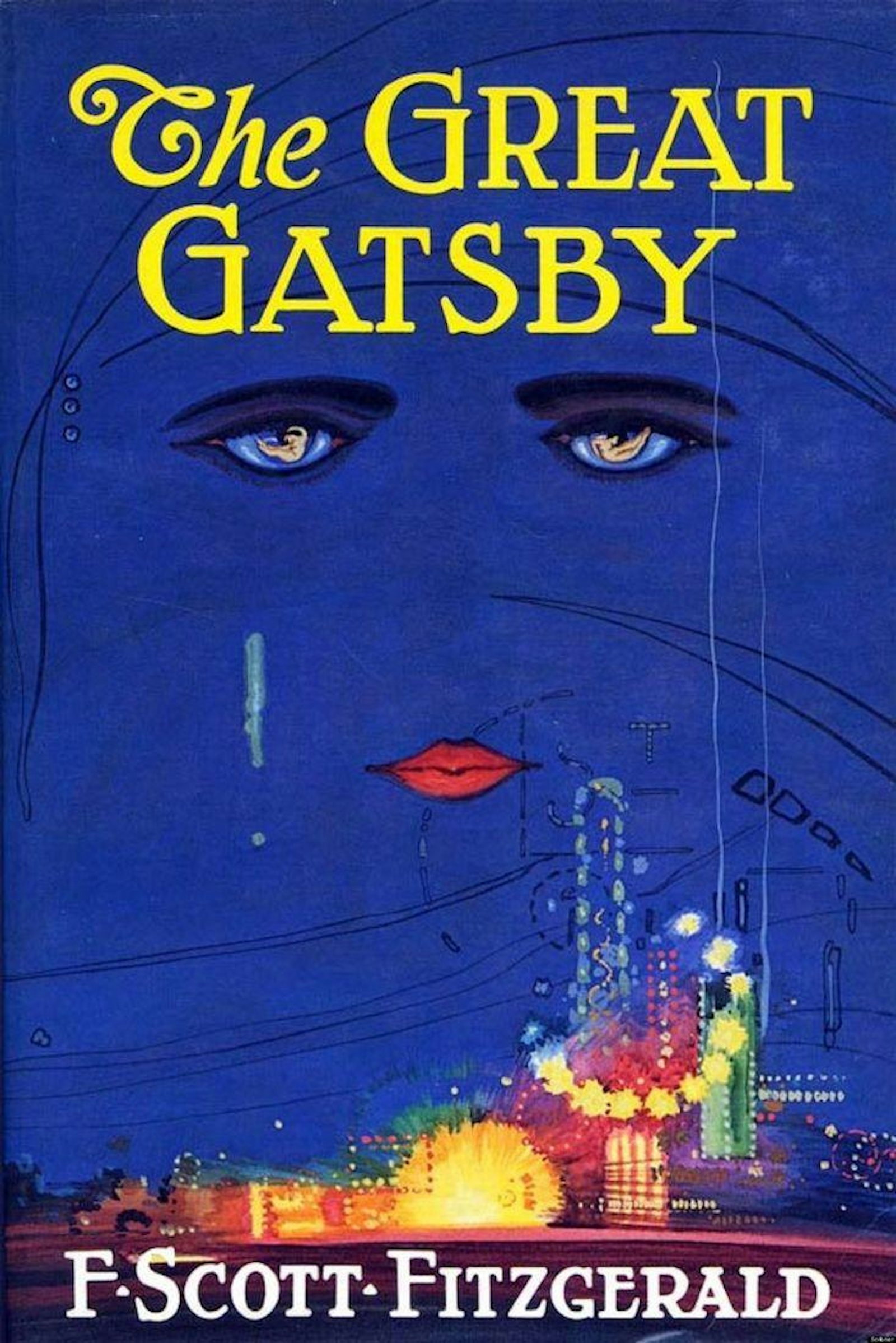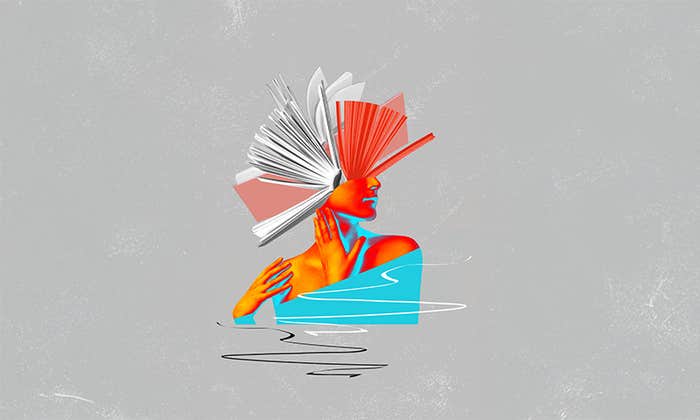It is a truth universally acknowledged, that a reader in possession of a novel with a distinctive voice often finds the very substance of her thought affected by that book’s characters as if they were real. Yet, in my younger and more vulnerable years an English professor once gave me some advice that I’ve been turning over in my mind ever since. “Whenever you feel like asking if fictional characters are ‘real’,” he told me, “just remember that fiction is by definition not real, and that the voice of a compelling character is an illusion and no more. Whether formal or historical criticism, all literary theorists must remember this.” And, if you really want to hear about it, the first thing you’ll want to know is if I still agree with that professor, and how lousy literary theory is, and all that Holden Caulfield kind of crap, but I don’t feel like going into it.
Or do I? Maybe those sentiments of mine are less my own than those of the characters lodged in my head. As it turns out, I’m not alone. University of Durham researchers have found that close to a fifth of all readers say they experience fictional characters as being real in their own lives, including “influencing the style and tone of their thoughts—or even speaking to them directly,” according to The Guardian. We hear fictional characters talking, imagining what their reactions might be to real events. We even have the sense that they “had started to narrate [our] world,” as if the reader were Will Ferrell in the 2006 film Stranger than Fiction.
We keep hearing those voices in our head, even after putting the book down.
Psychologist Charles Fernyhough (also a novelist), and his co-authors Ben Alderson-Day and Marco Bernini, include these phenomena under the term “experiential crossing”—one that seems to acknowledge the spooky power of literature that many people intuitively understand. Characters like Elizabeth Bennet, Nick Caraway, and Holden Caulfield may just be fictional creations of Jane Austen, F. Scott Fitzgerald and J.D. Salinger, but if you’ve read (and reread) Pride and Prejudice, The Great Gatsby and The Catcher in the Rye you can be forgiven your momentary or protracted suspension of disbelief in thinking that those fictional characters are kind of “real.” Certain characters get into our sinews and synapses, even if they never materially existed.
Those of us who teach literature are more than familiar with the phenomenon. If you’re a particularly lucky professor then you might have students who concur with Fernyhough when he says, “Some of my most powerful reading experiences come when I feel that the author has tinkered with the software of my own brain.” Yet over-concentration on that aspect of literature is largely verboten in academic literary criticism. We often extend that bias to our own students’ writing about novels lest they focus too much on how a novel made them feel, rather than a close analysis of the text alone. We explain to them that questions about what characters “really” thought or what happens to Holden Caulfield after the novel ends are nonsense, since these characters don’t exist separately from the pages that they’re printed on. And yet we keep hearing those voices in our head, even after putting the book down.
The study reminds me of the Tibetan Buddhist concept of the “tulpa,” thought-created beings who develop an existence independent of their creators. The 20th century Belgian-Buddhist writer Alexandra David-Néel explored this enigmatic belief, writing, “Once the tulpa is endowed with enough vitality to be capable of playing the part of a real being, it tends to free itself from its maker’s control.” Are Bennet, Caraway, and Caulfield tulpas? And what would it mean if academic literary criticism began its own taxonomy of something as exotic as the tulpa?
Maybe it’s time for a bit of some “occult” literary criticism.
It’s hard to imagine what exactly that might look like. Fictional characters don’t actually exist, so how could it be academically productive to talk about them as if they do? Since the Anglo-American New Critics of a century ago (scholars like I.A. Richards, William Empson, Cleanth Brooks, and T.S. Eliot), literary theories that focus on formal structures like narrative, rhetoric, rhythm, and so on take it as a given that the text alone is important to a proper interpretation of meaning. For scholars indebted to this approach, the “intentional and affective fallacies” define the parameters of good literary interpretation.
In this line of thinking, a good literary interpretation avoids focusing on either the author’s intentions or the subjective affect that his or her text has on the reader. Instead, all legitimate interpretations are, in this view, based strictly in the text itself. Historical-minded critics, willing to look at both cultural and biographical context, have broadened the sorts of questions we can ask. But metaphysics is largely bracketed out; asking in what sense a character is “real” or can interact with us has a bit of the glom of the occult about it—of the tulpa. A literary scholar writing about The Great Gatsby may focus on close readings of the language used in the novel, or she may write about the ways in which Fitzgerald’s life and society influenced the composition of the novel, but rarely will she ask in what sense Jay Gatsby is “real.” But what if we did suspend our disbelief, and ask more about the “reality” of these characters, whose voices seem so real in our minds?
Maybe it’s time for a bit of some “occult” literary criticism. Since the New Critics, some scholars have written “reader-response criticism,” rejecting the affective fallacy and examining how literature operates on the reader herself. They have certainly produced interesting work (as have formalist and historicist critics for that matter), but I’m suggesting the possibility of a more radical criticism: If we lean too much on the text itself, or the history surrounding it, and view with suspicion why people read, and what happens when they do, then we threaten to ignore some of the most interesting questions this weird thing called literature poses.
How would discussion of literature change if we began to think of particularly vibrant fictional characters as actually conscious, as real? And how would discussion of reading change if we thought those characters could in some way interact with us? After all our minds are, in some sense, a collection of voices engaged in dialogue. None of us are soloists; a choir sings within all, though not always in unison. “Experiential crossings” help us to understand that many of these voices aren’t even ours alone, but were rather created by authors, and shared with many of our fellow readers. A reality shattering book’s power does not dissipate once it’s closed. So, like the readers of The Great Gatsby, or Pride and Prejudice, or The Catcher in the Rye, we read on, books against the current, borne back ceaselessly into minds not our own.
Ed Simon is a senior editor at The Marginalia Review of Books, a channel of The Los Angeles Review of Books. He received his PhD in English at Lehigh University, where he studied 17th-century literature and religion. He has written for The Atlantic, The Paris Review Daily, Aeon, The Revealer, LitHub, and The Millions, among others. He can be followed at his website, or on Twitter @WithEdSimon.


























